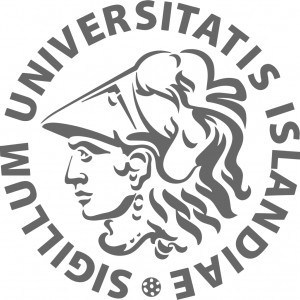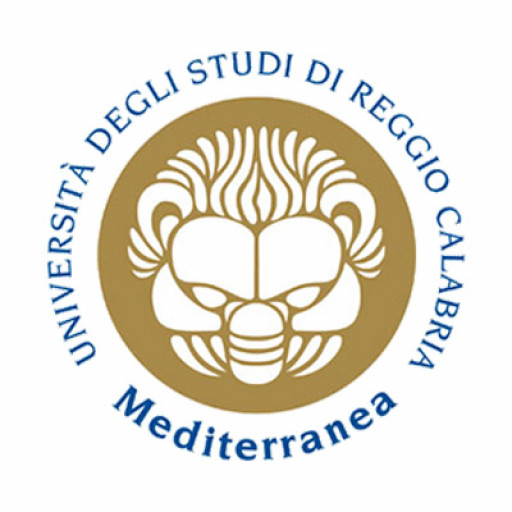Photos of university / #haskoli_islands
The Bachelor’s Degree in Environment and Natural Resources at the University of Iceland is a comprehensive undergraduate program designed to equip students with a fundamental understanding of environmental issues and the sustainable management of natural resources. The curriculum provides a multidisciplinary approach, integrating principles from ecology, geology, geography, biology, and environmental science to prepare graduates for addressing complex environmental challenges in Iceland and globally. Throughout the program, students engage in both theoretical studies and practical applications, including fieldwork, laboratory analysis, and project-based learning. Emphasis is placed on understanding the interactions between human activities and natural systems, as well as exploring strategies for conservation, resource management, and sustainable development. The program aims to develop critical thinking, problem-solving skills, and a multidisciplinary perspective, enabling graduates to contribute effectively to environmental policy, planning, and research. Students will also have opportunities to specialize in areas such as wildlife management, water resources, renewable energy, climate change, and environmental policy. The program is taught by faculty with expertise in various environmental disciplines and benefits from Iceland’s unique natural environment, which serves as a living laboratory for students. Graduates of the Bachelor’s Degree in Environment and Natural Resources are well-prepared for careers in government agencies, environmental consultancies, research institutions, NGOs, and private companies focused on sustainable development and environmental stewardship. Additionally, the program provides a solid foundation for students wishing to pursue advanced studies or a master’s degree in environmental sciences or related fields at the University of Iceland or abroad. Overall, this degree offers students the knowledge, skills, and practical experience necessary to make meaningful contributions to the preservation and sustainable management of our planet’s natural resources.
The Environment and Natural Resources programme at the University of Iceland offers students a comprehensive education in the management and sustainable use of natural resources, environmental protection, and the ecological processes that underpin our planet's health. The programme provides students with a robust understanding of environmental sciences, combining theoretical knowledge with practical skills to address the pressing ecological challenges of our time. Students will explore core topics such as ecology, geology, hydrology, and environmental chemistry, gaining insights into how natural systems function and interact. Emphasis is placed on sustainable development principles, environmental policy, and the social dimensions of environmental management, preparing graduates to contribute effectively to environmental governance and conservation efforts.
Throughout the curriculum, students engage with real-world issues through fieldwork, laboratory experiments, and project-based learning. They learn to assess environmental impacts, develop sustainable solutions, and communicate scientific information effectively to diverse audiences. The programme also covers topics such as climate change adaptation, renewable energy, waste management, and biodiversity conservation. Interdisciplinary coursework equips students with skills in data analysis, geographic information systems (GIS), and environmental modelling, essential tools for modern environmental professionals.
The faculty comprises experienced researchers and practitioners who bring practical insights into the classroom, fostering an engaging learning environment. Students are encouraged to participate in internships and collaborative projects with government agencies, NGOs, and industry partners, providing valuable hands-on experience. Graduates of the programme are well-equipped to pursue careers in environmental consultancy, public policy, natural resource management, environmental education, and research. They also have a strong foundation to continue advanced studies in environmental sciences, policy, or related fields. The Environment and Natural Resources programme at the University of Iceland aims to cultivate environmentally conscious professionals committed to sustainable development and the protection of our planet’s natural heritage.
Program requirements for the BSc in Environment and Natural Resources at the University of Iceland include a combination of coursework, practical training, and a thesis project. Students are expected to complete core courses in environmental science, ecology, geology, and resource management, which provide foundational knowledge necessary for understanding complex environmental issues. Elective courses offer specialization options in areas such as conservation, hydrology, or environmental policy, allowing students to tailor their education to their interests and career goals. To be admitted, applicants must have completed secondary education with a strong emphasis on science subjects, particularly biology, chemistry, and mathematics. The program typically requires students to achieve a minimum grade point average and demonstrate proficiency in English through standardized tests such as the TOEFL or IELTS, or through previous education in English. During the course of their studies, students are encouraged to participate in internships or research projects to gain practical experience and develop professional skills relevant to environmental analysis and sustainable resource management. The curriculum includes a mandatory thesis component, which involves independent research under the supervision of faculty members. The thesis must demonstrate the student’s ability to apply theoretical knowledge to real-world environmental challenges, employing appropriate research methods and critical analysis. In addition to coursework and thesis work, students are required to attend seminars, workshops, and field trips designed to enhance experiential learning and foster a deeper understanding of local and global environmental issues. Graduates of the program should possess a comprehensive understanding of natural resource management, environmental policy frameworks, ecological processes, and sustainability principles. They are expected to be capable of conducting scientific research, analyzing environmental data, and proposing viable solutions to environmental problems faced by communities and industries. The program emphasizes interdisciplinary learning and collaboration, preparing students for careers in environmental consulting, policy-making, education, or further academic pursuits. Overall, successful completion of the program necessitates a demonstrated ability to integrate knowledge across multiple disciplines, conduct independent research, and communicate findings effectively, ensuring graduates are well-equipped to contribute to sustainable development and natural resource conservation initiatives.
The financing options for the Environment and Natural Resources degree programme at the University of Iceland are designed to support both local and international students throughout their studies. Tuition fees for Icelandic and EU/EEA students are subsidized by the Icelandic government, making higher education more accessible. These students are required to pay a semester fee, which covers various administrative and infrastructural costs, and this fee is typically modest compared to international tuition rates. Non-EU/EEA students often pay higher tuition fees, which are set annually and may vary depending on the specific faculty and programme. The University of Iceland provides detailed information about tuition fees on its official website, and prospective students are encouraged to review these carefully to plan their finances accordingly.
In addition to tuition, students are advised to budget for living expenses such as accommodation, food, transportation, health insurance, and personal costs. The cost of living in Reykjavik, where the University is located, is relatively high; however, there are numerous scholarship opportunities and financial aid options available to help students manage these expenses. The University of Iceland offers a range of scholarships based on academic merit, financial need, or specific criteria related to nationality and background. These scholarships are awarded annually and may cover partial or full tuition fees, and sometimes living costs.
Students from abroad may also consider applying for external funding sources, including governmental scholarships from their home countries or international organizations. Icelandic students and residents have access to government-funded student loans and grants to support their studies. These financial supports are typically administered through the Icelandic Student Financial Aid Board (Lénaðar- og félagsmálaráðuneytið), which provides loans that can be repaid after graduation.
Part-time work during studies is another common means of financing, with students often working in Reykjavík to supplement their income. The university’s location offers numerous opportunities for students to engage in internships, research assistantships, and part-time jobs related to environmental and natural resource fields, further enabling students to gain practical experience while supporting their finances.
Finally, some students may choose to participate in research projects or work closely with faculty members, which sometimes include stipends or remuneration. These opportunities not only help with finances but also enhance the academic and professional experience of students enrolled in the Environment and Natural Resources programme. In summary, financing the studies at this university involves a combination of government subsidized tuition, scholarships, external funding, part-time work, and research opportunities, providing a comprehensive support system that facilitates academic success and personal development.
The Environment and Natural Resources program at the University of Iceland offers students a comprehensive education in the sustainable management and conservation of natural ecosystems and resources. The program aims to equip students with both theoretical knowledge and practical skills necessary for addressing complex environmental challenges. It covers various disciplines, including ecology, geology, hydrology, biodiversity, and environmental policy, providing a multidisciplinary approach to understanding and solving environmental issues. Students learn about the intricate relationships between natural systems and human activities, emphasizing sustainable development and environmental stewardship. The curriculum includes courses on climate change, resource management, environmental law, and GIS technology, preparing graduates for careers in research, environmental consultancy, policy-making, and conservation organizations. The program also emphasizes fieldwork and practical projects, allowing students to gain hands-on experience in natural habitats and ecosystems. Collaboration with governmental agencies, NGOs, and international organizations is a key component, providing students with valuable insights into real-world environmental management and policy development. Graduates are well-prepared to work in Iceland and internationally, contributing to the protection and sustainable use of natural resources in diverse settings. The university's facilities support advanced research and field studies, and students are encouraged to participate in national and international environmental initiatives. The program promotes critical thinking, analytical skills, and a commitment to environmental ethics. Overall, the Environment and Natural Resources program at the University of Iceland offers a rigorous educational path for aspiring environmental professionals dedicated to conserving Iceland’s unique landscapes and addressing global environmental issues.










